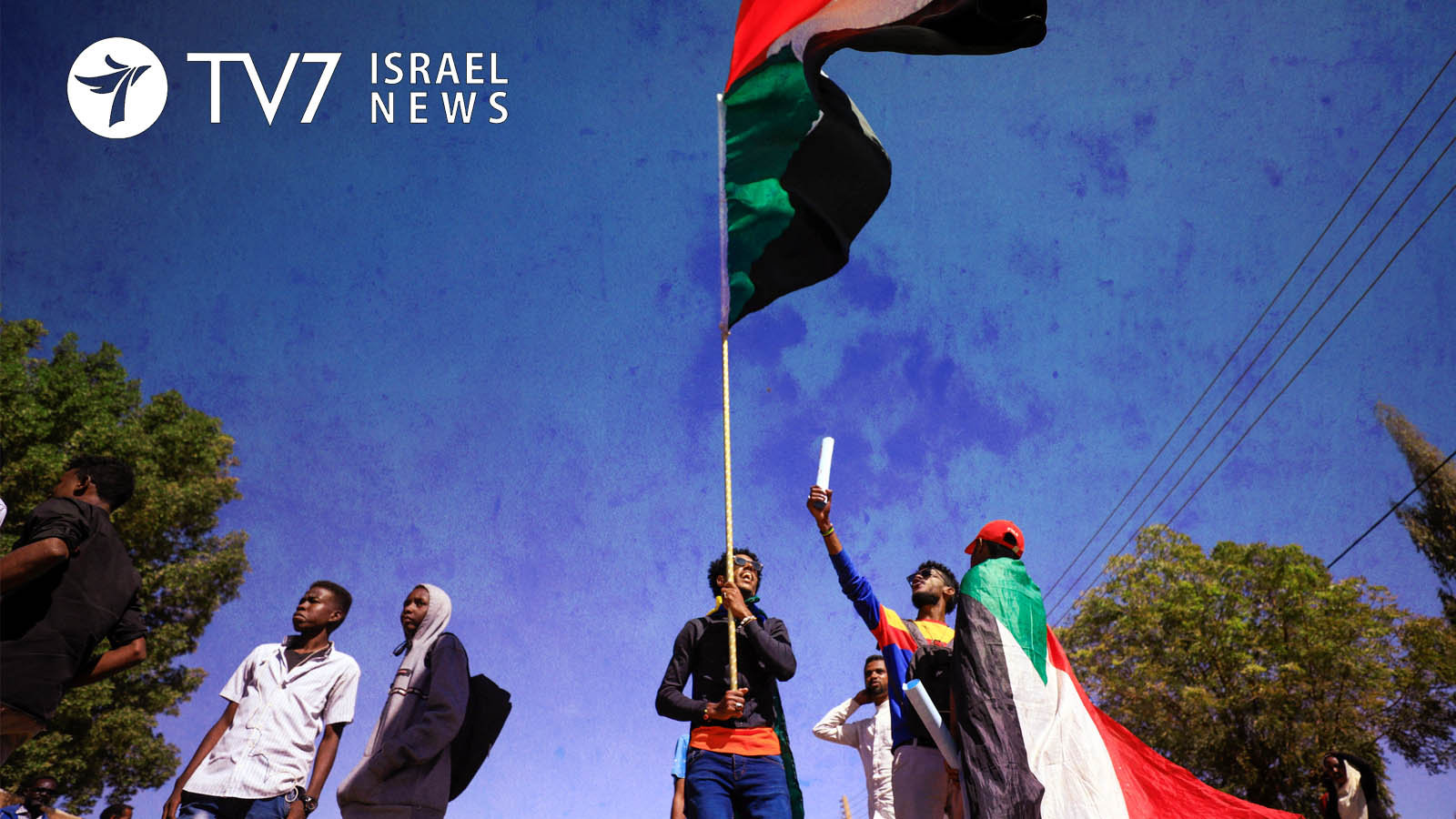Locals have voiced mixed feelings over the meeting between Israeli Prime Minister Benjamin Netanyahu and their leader, Chairman of the Transitional Military Council, Lt.-Gen. Abdel Fattah al-Burhan.
While normalization of relations between the two countries was discussed during the unprecedented meeting in Uganda on Monday, Burhan’s clear goal was the attempted-ending of Sudan’s ‘isolation’ by convincing the United States to remove it from the international blacklist of state sponsors of terrorism. Pursuant to a conversation TV7 held with a senior intelligence source, such attempts to lift Sudan’s designation are “not likely to yield results.”
Sudanese citizen Mayada Khairy told Reuters that “We want to see new things and to leave this closed circle that we’re in, leave the list of state sponsors of terrorism, and to get out of this suffocated state we are in. I don’t see harm in normalizing ties with Israel. Even if we don’t announce that we have normalized relations with Israel, we can say that it is an economic relationship, one of mutual interests, there is no problem.” Ali Abukalam echoed that sentiment, saying, “We are with the Muslim and Arab world… and the Muslim and Arab world both have ties with Israel, so I believe there is no harm in establishing relations with Israel that will be built on mutual interests and the guaranteed rights of the Palestinian people to establish a Palestinian state.”
Others weren’t so receptive to a warming of ties between Khartoum and Jerusalem. Bohayna Hassan told the news agency that “We send this message from here to Mr. Burhan, the head of the sovereign council: what a shame it is for a Sudanese to sit on the same table with Netanyahu,” with Tarek Babakr saying, “The betrayal that was represented in the meeting with the head of the Zionist entity is a dagger in the heart of the Sudanese people.”
In related developments, Bolivia’s Interim President Jeanine Áñez extended a warm greeting to the new Israeli ambassador following the renewal of diplomatic ties between Jerusalem and La Paz.
Former Bolivian President Evo Morales severed ties with Israel in 2009 in the wake of its Operation Cast Lead conflict in Gaza, as well as his hostile attitude United States and its allies. Upon taking office in November 2019, President Jeanine Áñez re-forged the Andean nation’s political relations with Jerusalem and engaged in a rapprochement with Washington.
Israel’s Ambassador to Bolivia Asaf Ichilevich commented, “Bolivia has always been a friend of Israel. Our countries have always been friends and our people have always had very good relations between the countries and the people, of course.” The envoy expressed hope that after the 14-year hiatus, “this first visit will be the first of many visits from Israel here and, of course, from Bolivia to Israel, to strengthen the relationship between the two countries.”
Ichilevich also revealed that initial talks with the Bolivian president and Foreign Minister centered on “technical cooperation over matters of agriculture, education and health.”
